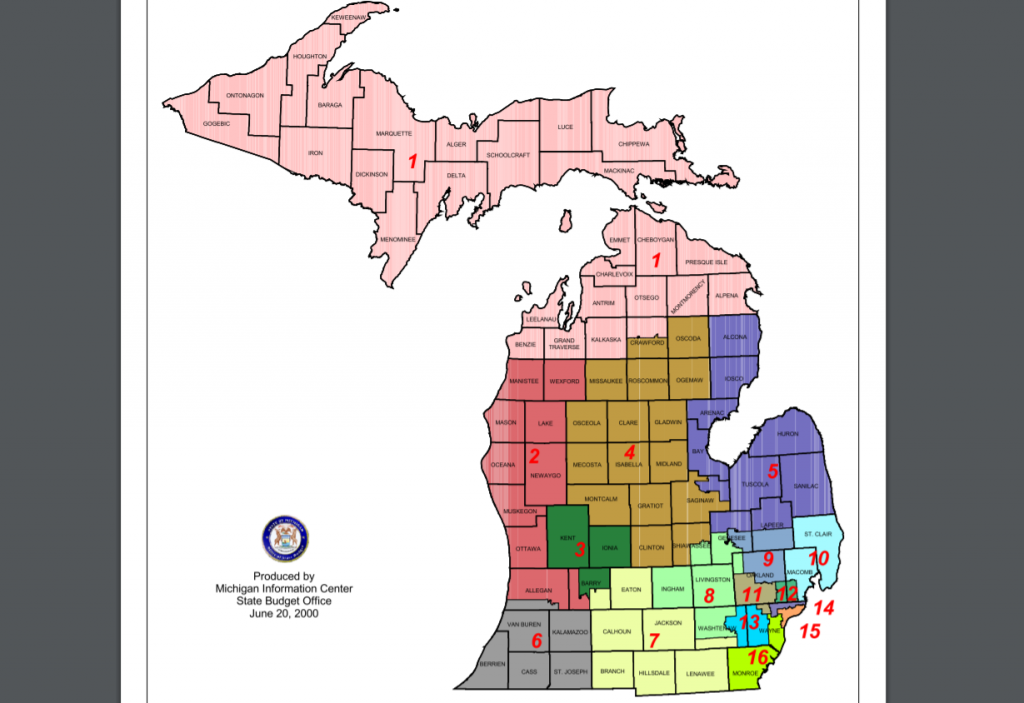Here’s Where Michigan’s Redistricting Effort Stands After SCOTUS Gerrymandering Ruling
Voters approved Proposal 2 last year, which takes the political line-drawing powers away from politicians and gives it to citizens.


The U.S. Supreme Court recently handed down some controversial rulings – especially when it comes to partisan gerrymandering. The decision passed down by the nation’s highest court said that federal courts cannot intervene in partisan gerrymandering cases. The decision involved cases out of Maryland and North Carolina, but it had a major impact on a case that was waiting appeal in Michigan.
A federal court had previously said that Michigan’s state Legislature needed to redraw dozens of those lines by August. That was because it found that Republicans had unfairly drawn the lines to favor their party.
As part of the weekly series MichMash, hosts Jake Neher and Cheyna Roth break down the implications for Michigan and what this means for the state’s new anti-gerrymandering law.
Click on the audio player above to hear that conversation.
Not dead yet?
The U.S. Supreme Court decision makes the Michigan case effectively dead, but that doesn’t mean that our state’s lines are going to stay the way they are forever. Michigan redraws its district lines every 10 years after a statewide census. But there is an even bigger change on the horizon for Michigan’s political district lines.
Related: Should Democrats Be Happy Over Supreme Court Gerrymandering Ruling?
When news came out about the court’s decision, many Democratic leaders wanted to make sure that people remembered that they’d voted for a major change during the 2018 election, Proposal 2.
Michigan Secretary of State Jocelyn Benson said the court’s decision was a blow to democracy.
“But the decision also makes it even more important that last fall Michigan voters took the process of drawing district lines out of the hands of politicians in Michigan and placed it squarely in the hands of our citizens,” says Benson. “Because with this clarity from the courts we will move forward in Michigan to implement the Independent Citizens Redistricting Commission that will draw districts fair and impartially for the 2022 elections and beyond.”
The Independent Citizens Redistricting Commission will be made up of 13 people: four who self-identify as Republican, four who self-identify as Democrat and five who self-identify as unaffiliated with either political party. How exactly this process is going to work is still under construction with the Secretary of State’s office working on applications and instructions for how to apply for a position on the commission.
The commission is a silver lining for Democrats and anyone else who felt that Michigan’s district lines were drawn improperly. There was also an additional boost to the plan tucked into the Supreme Court’s decision. As the majority was defending its position, that the courts have no place in tackling partisan gerrymandering issues, it pointed out that there is a remedy for states that are concerned their lines are being improperly drawn: changes to state law.
Alternative solutions
Indeed, numerous other states are restricting partisan considerations in redistricting through legislation. One way they are doing so is by placing power to draw electoral districts in the hands of independent commissions. For example, in November 2018, voters in Colorado and Michigan approved constitutional amendments creating multi-member commissions that will be responsible in whole or in part for creating and approving district maps for congressional and state legislative districts.
Because the court has left this up to states to decide how to handle redistricting, this opinion could actually provide a thin layer of protection for Proposal 2 in any litigation against the law moving forward.
Therefore, although Democrats and other people who are concerned about gerrymandering are decrying this ruling, it might not be entirely bad news for those folks here in Michigan.
